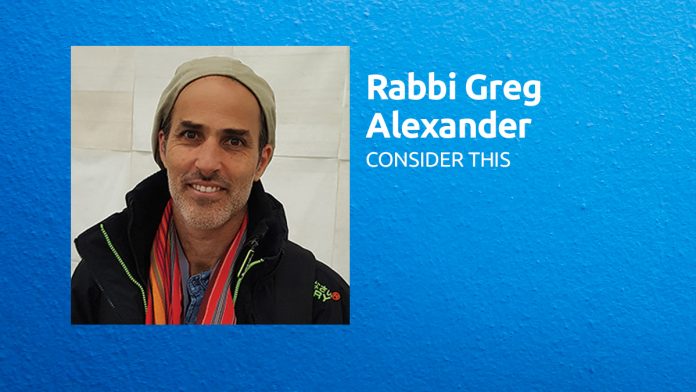Why does G-d bring the COVID-19 virus? Can something bad be good? Can G!d, who is surely all-Good, create evil? Why do good people get sick or die?
These are some of the hardest questions for a sensitive thinker to consider. During one of my first stints in yeshiva in Israel more than half my life ago, I asked my rabbi how he was and his answer was, “Baruch Ha-Shem, I have a little flu.” I wasn’t sure I had heard correctly. I was used to religious friends saying Baruch Hashem in answer to a casual “Howzit,” or even “Baruch Hashem, fantastic!”, but “Baruch Ha-Shem, terrible,” was not a response I had considered before. It was only when I was shown this Mishnah (B’rachot 9:5) that I understood it fully:
“One should bless the evil just as one blesses the good. For it is written [in the Sh’ma], “You shall love the Eternal your God with all your heart and with all your soul and with all your being.” “With all your heart” means “with your two inclinations, with the Yetzer ha-Tov (good inclination) and the Yetzer ha-Ra (evil inclination).”
The Mishnah is basing itself on a curious spelling of the Hebrew word for a heart. In most cases, the word is spelled Lamed-Bet which results in the word lev, but in the Sh’ma the phrase is b’chol l’vav’cha – “with all your heart”. The word for heart has a double bet – l’vav. Why did the Torah use the extra bet? The Mishnah understands it to mean with your ‘two hearts’, that is your good and evil inclinations.
On a psychological level this means that while deep down within us the struggle goes on between our good and evil inclinations, on a conscious level we should understand that everything that happens in this world (and within us) is a result of G*d, and therefore deserving of blessing.
That’s easier to say than it is to feel on a deep level, especially if we are in a stressful situation. And right now, who isn’t? Some of us have lost jobs and seen businesses fail. Even if we do have work and income the pressure of managing our day-today life while juggling work, family, relationships and basic things like shopping and cooking which now take so much more planning, energy and thought than before. If you are a parent like me, you are either spending all day sitting with your child home-schooling them or feeling guilty that you are at work and not. And in the background of all of this is the stress of not knowing what the future holds and the fear and uncertainty that comes with that.
What our Mishnah suggests is that all of this struggling, frustration and energy is somehow connected, and all demands a brachah. There is nothing that isn’t G!d, neither things we perceive to be fantastic, nor things disastrous. The scream of anguish at the end of a frustrating day, the joy of a simple meal with family, the masks, the sanitisers and the handwashing — all of these are Divine in origin.
The answer must be that G!d does not try to make our lives hard or even easy — as Rabbi Akiva used to say, kol mah d’avid rachmanah l’tav avid, “Everything that the Compassionate One does is for good.” God wants us to make our lives a blessing by turning the abundance that we have, the gifts that we are born with and are everywhere around us, and even the wrestling and struggling we undertake to get through the day, all these into more blessing. And each time we acknowledge that, each time we remember God’s role in our lives and the world around us by saying a blessing, we are a blessing.
I want to wish each and every one of us strength, health and courage for these days. May we have compassion and kindness for ourselves and others. We are all in this together. And may we live our lives with blessings for all that we receive, the good and the bad.
By Rabbi Greg Alexander
Temple Israel www.templeisrael.co.za
To read or download the full July 2020 issue PDF of the Chronicle, click here
To keep up to date on COVID-19 related community news, click here
Portal to the Jewish Community: to see a list of all the Jewish organisations in Cape Town with links to their websites, click here
To receive the Chronicle each month in your inbox instead of your postbox please email editor@ctjc.co.za and we will make it happen.
Follow the Chronicle: Facebook | Instagram | Twitter | LinkedIn











